Let’s say you were born an undeniable genius, a composer, and music producer, who plays over 20 instruments. You spend a few years working tirelessly at your craft and releasing 2 albums that are desperately crying in the musical wilderness for the attention they deserve. In the meantime you occupy yourself as a music educator while residing in Minneapolis, MN. Then, a magical time comes when you are at the zenith of both your talent and your vision, and you are blessed to be surrounded by the technology and instrumentation to fully express them all by yourself, except for the help of your two cats of course – Fred and Maceo. So you unleash your creative bang into eleven tracks that tell the story of an astral voyage, and collect them all onto one funky album, curiously entitled “Captain Queso and the Revealing Science of Groove”. If that perfectly describes your musical journey thus far, you are none other than Casey Frensz.
 For the rest of us, Casey’s music is hard to place into any box or time-frame, which to my mind makes it a lasting piece of art. On this album, he is like a strange character from your subconscious – edgy, unpredictable, but approachable and sheer fun. The exhilarating blend of music he has created on this album, is not likely to be repeated by anyone, any time soon.
For the rest of us, Casey’s music is hard to place into any box or time-frame, which to my mind makes it a lasting piece of art. On this album, he is like a strange character from your subconscious – edgy, unpredictable, but approachable and sheer fun. The exhilarating blend of music he has created on this album, is not likely to be repeated by anyone, any time soon.
For the sheer enormity of the task at hand – in writing, arranging and performing, an epic creative beast of this magnitude. Even if it can be said that “Captain Queso and the Revealing Science of Groove” is Casey Frensz at his most accessible, it isn’t really saying much, depending which side of accessible you come from.
This is still an ambitious and uncompromising listen for anybody who gets their sonic kicks from the Top 40. While not as willfully distorted into obtuse creations, the songs still maintain a fiery and experimental flavor. The traditional funk roots throb, thump, and rumble, while still being as gnarled and twisted as it gets.
The fruit it bears is decidedly an acquired taste – definitely more spicy than sweet. Casey has no intention of pandering to the mainstream, as much as thumbing his nose up and lampooning it. Love or hate his work, there’s no denying Casey Frensz not only challenges, but threatens to change the face of modern popular music.
Quite frankly after listening to this album, I can declare that Casey is ready to earn a reputation as one of the foremost musical innovators of this generation. And he achieves that innovation by moving backwards. Real instruments, actually played in 2019! Are you serious?
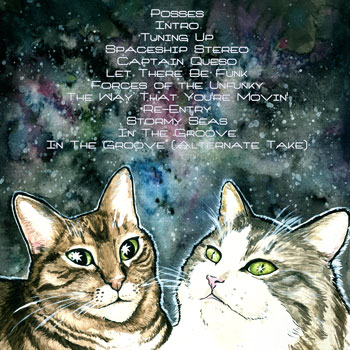 Hammond organs, saxophones, trumpets and trombones, and a whole long list of other organic instruments make up the credit list, at a time when a laptop and a gateway to some loops and samples may have been sufficient. Not for Casey Frensz, dear friends. For him authenticity is the key – uncompromising, immovable and flagellated by principle.
Hammond organs, saxophones, trumpets and trombones, and a whole long list of other organic instruments make up the credit list, at a time when a laptop and a gateway to some loops and samples may have been sufficient. Not for Casey Frensz, dear friends. For him authenticity is the key – uncompromising, immovable and flagellated by principle.
Another important instrument on the album, however, is unavoidably the voice of Casey Frensz himself. In possession of an incredible vocal range, Casey twists and contorts his voice in astonishing ways throughout this recording. Listen to its orthodox beauty on the balled, “Stormy Seas”.
Revel in its harmonic eccentricities in “Tuning Up”, or just slide to its visceral groove on “The Way That You’re Movin”. Instinctive, a throbbing nerve, a musical live wire, Casey is also most impressive in his arrangements. Especially his arranging of the horns. Listen to “Captain Queso” and “Re-Enty” for a taste of his dynamic and vibrant sonic imagery.
Throughout his musical expositions Casey allows us to observe his many procedures, whilst the walls of his music magically sedate us. If after listening to “Spaceship Stereo” and “In The Groove”, you believe that he is a genius and a visionary, or even merely, an overrated screwball, there is no doubt as to his abject refusal to play by the rules.
What we have here is a selection of luxurious and groovy funk influenced songs infused with shifting rhythms, unequal phrase lengths and jagged riffs, all stamped with Casey Frensz’ indelible brand of brilliance, which sits somewhere between the bizarre creativity of Frank Zappa and the meticulous craftsmanship of Steve Wilson. This is essential listening if your love of music goes beyond verse-hook-chorus!
INTERVIEW WITH CASEY FRENSZ
- How long have you been performing and recording, and did you have any formal training?
Casey Frensz: I started playing the guitar when I was 8 years old, I’m 27 now. Over the years I’ve learned to play over 20 instruments, and I always aim for large instrumentation on my projects. I had guitar lessons for a few years when I first started, but otherwise, I was mostly self-taught until college, when I studied saxophone and music education at Lawrence University. I recorded my first solo album with an internet chat microphone when I was 15- it didn’t sound very good, but it got me really excited about the potential to make rich music through multi-track recording. I released my first quality solo album in 2017, another one last summer, and now I feel like I have a pretty good system set up for tracking each instrument and mixing the sounds together. It’s been a slow trial and error process, but a great way to learn and be creative!
- If someone has never heard your music, which keywords would you personally use to describe your overall sound and style?
Casey Frensz: I like to create multi-genre music. I’ve never been able to confine myself to a particular musical feel or sound. Most of my music is based on popular styles, but generally with a richer orchestration. I take lyric writing seriously, and try to be poetic and sincere with my message. Rhythm and groove is at the core of all the music I write- most of it could be danced to.
- If any, which current artists do you listen to and respect for their artistic endeavors?
Casey Frensz: I don’t listen to a lot of modern music, but there are a few bands I really enjoy like Phish, Lettuce, and Umphrey’s McGee- the new Parliament, Bootsy Collins, and Tribe Called Quest albums are also fantastic. I also love catching local bands at the bars in my neighborhood and hearing all of the talented and creative artists from around town. Most of the best musicians I’ve ever heard aren’t the type of people who get lots of public attention or radio airplay.
- Do you remember the first piece of musical equipment that you actually purchased? And which is the one piece of hardware or software you’re still looking to add to your setup now?
Casey Frensz: The first instrument that I bought for myself was a Seagull S6 acoustic guitar. Now I’ve got about 60 instruments in my house gathered from all around the world. If I could have my dream gear, I’d get a clavinet, a Rhodes, a bass sax, and a bass clarinet. Some sweet mics and a new interface would be great too, but the stuff I have now is working out fine!
- Where do you do most of your recording and production work? And do you outsource any or all of these processes?
Casey Frensz: I do all of my work in my house, typically in my basement where my drums, amps and keyboards reside. For me, a solo album is truly an individual endeavor. I do all of the work and it all happens under my roof. This way, I can work at whatever hours I want and keep my flow going without worrying about time and money.
- Studio work and music creation, or performing and interacting with a live audience, which do you prefer?
Casey Frensz: It’s difficult to compare the two. I can’t recreate my music live without hiring a band, which I don’t have the money for. Whenever I go to jams or sit in with other groups, I definitely enjoy the energy and rush of live performance, but the studio affords me the best opportunity to work as a creative artist and bring the music in my imagination to life.
- Do you have a song in your catalog that you are particularly fond of for some nostalgic or emotional reason? And what is its back story?
Casey Frensz: I really like the song “The Truth” from my 2017 release, Spiral. It’s my only song that features just acoustic guitar and voice, so it’s one that I actually can perform by myself. I wrote it for a woman who I love very much, I think I did a nice job capturing that sentiment both lyrically and musically. We’re no longer together, but the song reminds me of how good things can be, and to never lose faith in love.
- Is there a particular song in your album “Captain Queso and the Revealing Science of Groove” on which you feel you’ve delivered your most perfect performance, technically and emotionally? And is there maybe one song that you keep thinking you should have done differently in some way?
Casey Frensz: I think “Stormy Seas” is the most powerful track on the album. It doesn’t follow the funky style of the rest of the tracks, but features the yangqin- one of my favorite musical sounds- and has lyrics that I think are both deep and relatable. The ending section offers a great opportunity for deep listening, relaxation, and meditation. There are little things on every track I wish I had played better, but I’m genuinely happy with how every song turned out on this release- each one fills its niche appropriately.
- Could you describe your creative process? What do you usually start with and how do you go about shaping these ideas into a song?
Casey Frensz: I start with an overarching concept for a full album, then typically write all of the lyrics to create a cohesive story. I’m always imagining different musical lines, and some end up matching with lyrics right away. Those songs get recorded first and usually go pretty quickly. The more subtle, poetic, or oddly phrased the lyrics are, the harder they are to match to music, so I leave those for later and ponder them while I’m working out the “easy” songs. I think a lot about what instrumentation will properly bring my lyrical message to the forefront, then generally start with a bassline, though sometimes I’ll go right to my guitar or piano to develop a chord progression. I record bass, then rhythm guitar and keys, then drums, then vocals, and finally horns and solos at the end. This isn’t my process 100% of the time, but it’s become a pretty standard way for me to work.
- What were your main compositional, performance and production challenges in the beginning of your career and how have they changed over time?
Casey Frensz: Early on it was really hard for me to get good quality out of my production. I had cheap mics and didn’t properly understand how to get good input levels. Over the years, I’ve collected gear that’s still cheap, but it’s dependable and I know what to expect from it. Learning how my equipment works and just getting better at playing has improved the quality of each album I’ve made. Performance-wise, it’s always a struggle trying to play complicated lines on instruments that I’m not so familiar with, but the writing and recording process forces me to practice lines that are beyond my current ability, and I’ve ended up a lot better at my secondary instruments as a result. On each album, I’ve been able to get better sounds out of things like drums, keyboards, and brass which I came to later in life.
- What are currently some of the most important tools and/or instruments you’re using in creating your sound on“Captain Queso and the Revealing Science of Groove”?
Casey Frensz: My secret weapon is the Fluoreon BM700 mic. It’s a cheap Chinese condenser mic that I got on eBay for 15 bucks. Aside from drums and the occasional SM57 on the grill of my guitar amp, I use that single mic for EVERYTHING. Last summer was the first time I had a guitar with a whammy bar, now I’ve fitted different tremolo devices to all of my electrics and there’s some nice wiggle on the guitar parts in this album. There’s also a lot of my Hammond M3 organ, which I adore. I used over 20 instruments on the record- they’re all listed on my Bandcamp page.
- Which was the most difficult track to record on “Captain Queso and the Revealing Science of Groove”, and why?
Casey Frensz: Re-Entry was really hard. It’s over 8 minutes long without significant harmonic change, so just keeping it interesting was tough to plan. The thing that made it really difficult for me was the trumpet line. It’s not particularly virtuosic, but I wanted the line to be very sharp and articulate, and I’m not a great trumpet player. Getting the melody right took 2 days of practice and a couple hundred takes.
- What’s your view on the role and function of music as political and/or social vehicles – and do you try and affront any of these themes in your work, or are you purely interested in music as an expression of artistry and entertainment?
Casey Frensz: I think that society has an epidemic of insincerity. It seems to me that so many people spend their time doing what they think they’re supposed to do or following the crowd rather than standing up for themselves and following their hearts. To me, the function of art in society is to create an example of the power of self-expression, individuality, and courage. Everyone has a story, and everyone’s story is valuable by virtue of being totally unique. I am curious about people’s stories, and I wish more people felt empowered to share their stories with the world. Music is my method of self-expression, and through releasing my songs, I’ve found that there are others who can relate with what I’m feeling. If more people made art, I think we would realize that we have more in common than politicians and the media would have us believe. I’d like to live in a more open and united world, it’s why I produce music, and also my main drive for being a music educator.
- With more and more musicians creating and releasing music on their own, what are your feelings on how the music business works right now with all the digital platforms and streaming services? Is there anything you would change or suggest as an improvement?
Casey Frensz: It’s an industry, and the primary function of industry is to make money, not to make creative art, that is what it is and probably won’t change. I appreciate that advances in technology have made me able to produce my own music at a low cost, but the side effect of that is that there is so much music being produced that it’s increasingly harder to get yours heard. The music that’s most widespread and popular in society is usually going to be a commercial product, not an artistic endeavor- I don’t think anybody is going to change that, but I feel blessed that I am able to create high quality recordings on my own and use the internet to share them with my friends around the world.
- Do you consider Internet and all the social media websites as fundamental in building a career in music today, and what is your personal relationship with the new technology at hand?
Casey Frensz: It’s essential, but it ends up sucking more and more time away from music making in favor of promotion and marketing. I’m not super interested in those things, so I choose to make my money as a teacher and a producer, which affords me the opportunity to let my recording projects be artistic rather than commercial. I have a Facebook page and I have my music available on all the major streaming platforms, but I’m not really interested in making constant twitter and Instagram posts and keeping up with the hashtag game- that would take too much time away from my creative work.
- How essential do you think video is in relation to your music? Do you have a video you would suggest fans see, to get a better understanding of your craft?
Casey Frensz: People seem to prefer video to just listening to music. I love video because it’s such an immersive, multi-dimensional art form, but it’s expensive and time consuming. I had a low-cost music video created for my song “Waiting for the Phone” from Identity Games (2018) that I’m quite happy with, but I don’t have the budget to create videos for most of my songs. If I ever did, I’d love to try to bring my music to life with animation, as that offers an endless world of creative possibilities. I personally release low quality videos of instrument demos on my Facebook and YouTube pages for my students and fans who might be interested. Those offer a good look at my musical curiosity and passion for teaching.
- What is the best piece of advice regarding the music business that you actually followed so far, and what is the advice you didn’t follow, but now know for sure that you should have?
Casey Frensz: Though I’ve struggled to consistently follow this advice, I’d say the best thing I’ve heard is “be kind to everyone.” People in the industry talk to each other, and reputation is paramount. Sometimes business goes bad, but one bad gig can turn into a worse problem down the road if you make a huge fuss over it- sometimes you just have to cut your losses with a smile in order to save face. The piece of advice that I believe myself and other musicians should always do a better job of following is simple- practice!
- You are also a music teacher. How do your students react to your music and recordings, and do any of them get a chance to appear in any of your work?
Casey Frensz: Most of my students like my music, but few of them really engage with it beyond the examples that I share with them in our lessons- they have their own musical interests, which is great! I’ve brought my students along with me to jams and performed live with some of them, but they haven’t been featured on any of my recorded work yet. Many of my students have become inspired to write their own material, though, and one of my favorite jobs as a teacher is helping them to record their original songs. I’ve produced high-quality recordings for my private students and my classes at school. They are usually super excited to hear themselves, and I think they’ll be very thankful for the memories a few years down the road! Just last weekend I recorded a fantastic original song that one of my 12-year-old ukulele students wrote- I’m very excited to help her lay down more songs and see her potential continue to unfold! Kids these days are starting even younger than I did, which makes me incredibly excited to hear what they will be making in the years to come.
- What would you consider a successful, proud or high point in your endeavors so far?
Casey Frensz: Just getting this record done took sheer force of will. I think it is my best work to date, and no matter how it is received or if it gains any public traction, I’m extremely proud that I had the guts to put in the roughly 400 hours it took to finish.
- Do you have a specific musical vision hidden somewhere in your closet, or in your mind, that you have not yet been able to realise for technical, financial, or other reasons?
Casey Frensz: The Frensz Family Band will be a big deal someday- but I need to meet the right musicians with a like-minded approach to art. In the meantime, I’ll keep working solo and writing material so that the set list will be ready when the players appear!
OFFICIAL LINKS: WEBSITE – FACEBOOK – SPOTIFY – ITUNES – BANDCAMP


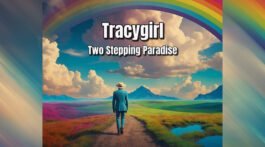

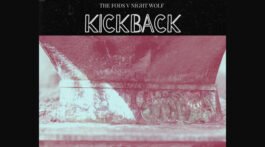

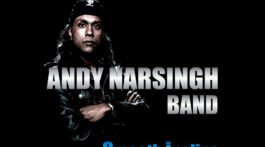

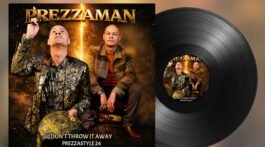




No Comment